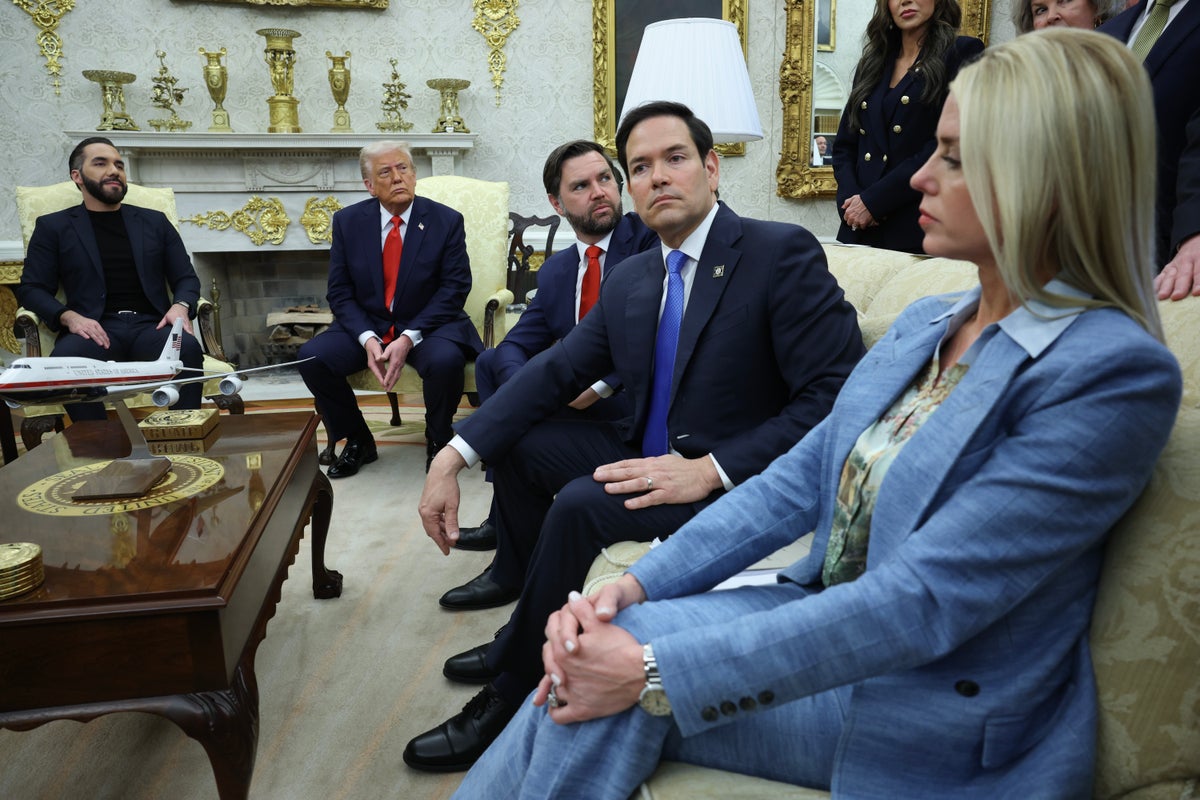UPDATE: A shocking report reveals that Secretary of State Marco Rubio allegedly sacrificed U.S. drug gang informants to finalize a controversial prison deal with El Salvador’s President Nayib Bukele. This arrangement involved the indefinite detention of dozens of Venezuelan deportees in a notorious prison known for human rights abuses.
In a deal struck on March 13, 2023, President Bukele insisted that MS-13 gang members he wanted imprisoned were actually protected informants. Rather than dismiss this demand, Rubio reportedly agreed to negotiate with Attorney General Pam Bondi to strip these informants of their protections. This revelation has sparked outrage and raised serious concerns over U.S. policy and the treatment of deportees.
Access to the Terrorism Confinement Center, or CECOT, was a key element of this agreement. Human rights groups have described CECOT as a “tropical gulag” and a concentration camp central to the Trump administration’s mass deportation agenda. The administration’s actions have drawn widespread condemnation, with many critics arguing that they undermine years of law enforcement efforts to build trust with informants.
The arrangement unfolded as the Trump administration invoked the Alien Enemies Act, allowing for the summary deportation of alleged Venezuelan gang members. Reports indicate that many of these individuals had no criminal records and were in the U.S. legally, awaiting asylum claims. A D.C. judge had even ordered planes to turn back, highlighting the legal turmoil surrounding these deportations.
On July 18, 2023, amidst trilateral negotiations, over 250 Venezuelans were returned home following their five-month ordeal in CECOT, where they faced severe abuse, including physical beatings. These detainees were reportedly shackled and isolated from families and lawyers, living in inhumane conditions.
Court filings revealed that El Salvador informed the United Nations that the legal responsibility for these detainees falls squarely on the United States, countering claims from U.S. officials that they were no longer accountable for their treatment.
This unfolding situation has left former Justice Department officials dismayed, fearing that years of investigative work may have been compromised for a political agreement. Daniel Brunner, a former FBI agent, expressed deep frustration, stating, “It would gut me as a case agent,” emphasizing the emotional toll of sacrificing informants.
With mounting pressure on the Trump administration and Rubio, the next steps remain uncertain. Observers are closely watching how this situation impacts U.S. relations with both El Salvador and Venezuela, as well as the future treatment of deportees caught in this political crossfire.
The ramifications of this deal are far-reaching, with implications for U.S. foreign policy and human rights standards. As developments continue to emerge, the public remains eager for clarity on how these actions will affect the lives of those deported and the integrity of U.S. law enforcement efforts going forward.
